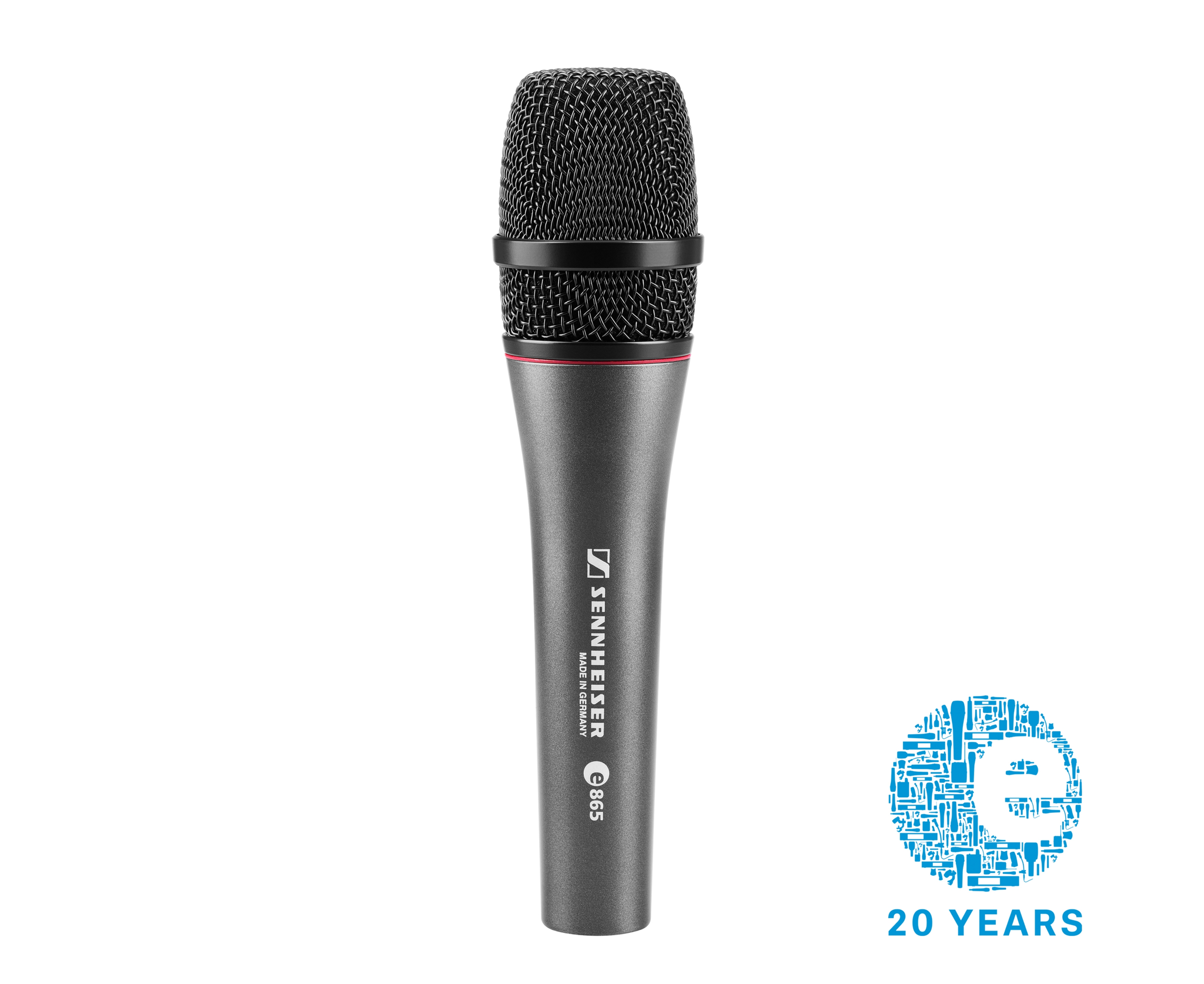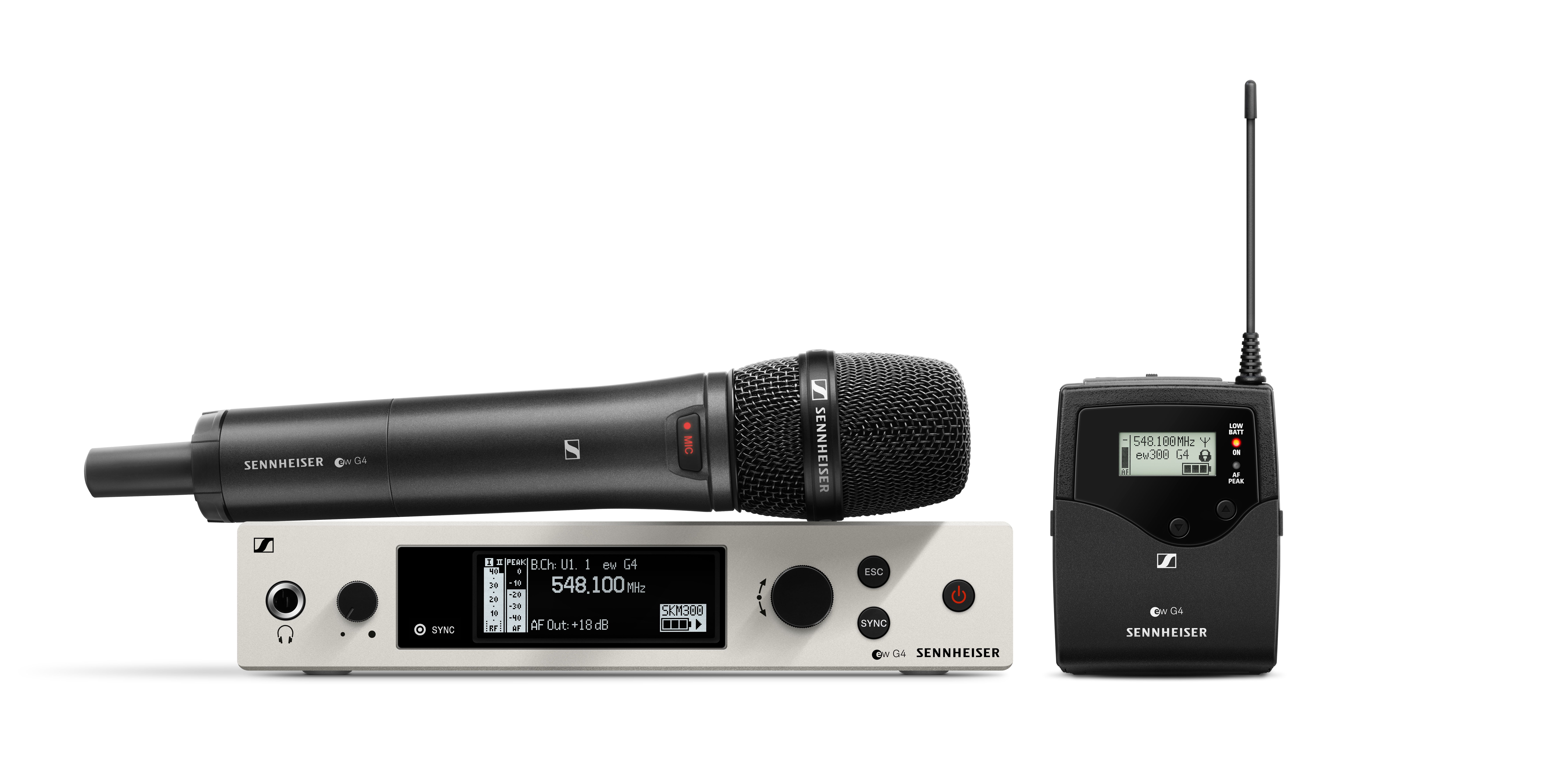Happy evolution!

Sennheiser’s evolution microphone series celebrates its 20th anniversary
Wedemark, December 13, 2018 – Sennheiser's successful evolution microphone series turns 20! In 1998, the audio specialist’s evolution microphones first came into the limelight, providing bands with complete one-stop miking and rich sound for vocals and instruments. Over the years, the series has become the global industry standard for live concerts, events and other stage events. As part of the "Build your own mic" series of events in the UK and Germany, the 20th anniversary of the evolution microphone series was celebrated with customers, sound experts and the media.
evolution microphones have been specially developed for the harsh conditions experienced on the live stage and are specialists in their field of application. The series achieves a perfect balance between affordability and excellent sound with high-quality workmanship. This makes the evolution microphone family equally at home on small and large stages: for countless bands and events, evolution microphones are an integral part of the rider. This is a success story that began 20 years ago.

The evolution success story
It all began in 1998, when Sennheiser launched a microphone series created to cover the needs of the entire band. In these early days, the evolution series includes the vocal microphones e 825, e 835 and e 845 as well as the e 602, e 604, e 604, e 608 and e 609 instrument microphones. This was followed in 1999 with the launch of evolution wireless, which remains to this day the most popular radio microphone series in the Sennheiser portfolio. It meets the needs of musicians, speakers and videographers alike.
In 2000, the e 865 became the first condenser microphone in the series to be released. The tuning of the microphone sound was supported by new wave rock legend Sting, and by his sound engineer Vish Wadi.

In 2003, the evolution 900 series was born with the introduction of the e 935 and e 945 vocal microphones. The sound of the microphone capsules contributes significantly to the success of the 900 series. 2003 proved to be a year of evolution milestones, as Sennheiser also introduced the second generation of evolution wireless. G2 offered improved sound and optimized RF characteristics, a new user interface, a scan function and smaller bodypack transmitters. In 2004, the evolution 900 series was to be expanded to include the e 901, e 902, e 904, e 905, e 906, e 908 and e 914 instrument microphones.
With the launch of the e 965 in 2008, Sennheiser not only introduced a new flagship but also the first true condenser large-diaphragm microphone in the evolution series: The microphone is equipped with a double-diaphragm transducer, allowing the directional characteristic to be switched between cardioid and super-cardioid. In 2009, the third generation of evolution wireless followed: G3 brings wireless microphone technology to a new level with features such as IR synchronization, soundcheck mode, frequency coordination via the Wireless Systems Manager, extended audio frequency range and replaceable microphone heads for the handheld transmitters.
In 2011, Sennheiser became the first manufacturer of wireless microphones to transmit in the 1800 MHz range. In response to the decision to no longer provide UHF frequencies between 790 and 862 MHz in Europe for wireless microphone systems, the evolution wireless ew 100 G3-1G8 systems transmit in a spectrum that is reserved exclusively for wireless audio transmission in many European countries. In 2013, Sennheiser presented the e 835 fx, which in addition to its high output also supported TC-Helicon vocal effects.
In 2015, Sennheiser's evolution wireless D1 brought to market a range of wireless microphones that made digital wireless transmission a lot easier as they operated in the license-free 2.4 GHz range. In the same year, the SL DI 4 XLR Dante interface made it possible to integrate all evolution wireless systems into Dante networks.

With the launch of evolution wireless G4 in 2018, Sennheiser is once again enhancing and expanding the successful wireless microphone series – making it ready for the audio demands of the future.
To celebrate the 20th anniversary of evolution, Sennheiser held several events with customers around the globe, including audio storytelling events that looked back at the history of the wired and wireless evolution microphone series. In addition to stories from the past two decades from Sennheiser employees during their time developing the evolution series, long-time Sennheiser users shared their experiences with evolution microphones.

Stephanie Schmidt
PR Manager Professional Audio, Sennheiser electronic SE & Co. KG
20 years of evolution_en.docx
DOCX - 3.0 Mb
20 years of evolution_en.pdf
PDF - 127 Kb





